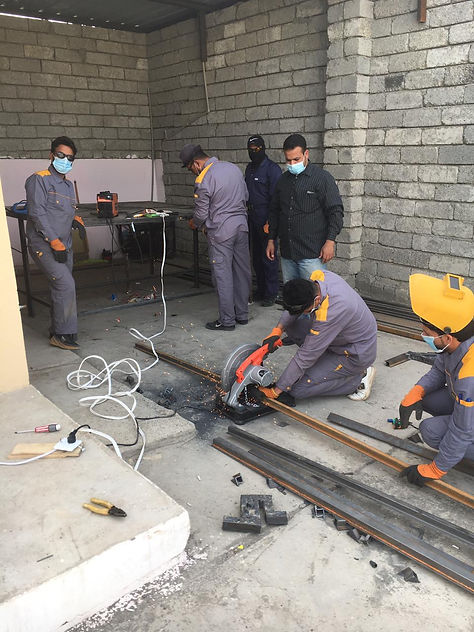
TO EARN A LIVING
We believe that restoring livelihood is the way to prevent aid dependency and build peace.
LIVELIHOOD DEPARTMENT

Livelihoods Department
Since 2014, Mercy Hands has implemented 240 projects in the sectors of Emergency and Recovery and Livelihoods. In the last few years, the Livelihoods Department kept growing as more and more projects focused solely or mainly on livelihoods and economic recovery, and Mercy Hands became an active member of the Emergency Livelihood Cluster, Cash Workgroup, Food Security Cluster, and Financial Service Providers Task Force (FSP-TF). We have partnered with many different UN agencies and international organizations for livelihood programs, such as UNDP, WFP, Malteser International, Mission East, Mercy Corps, AMAR US, WHH, FAO, UNICEF, and Lemon Tree Trust.
[Link to the 2019 Livelihoods Projects – currently on the page]
In 2020 and 2021, our Livelihoods Department has been focusing on Economic Recovery with four major projects in partnership with UNDP, for a total budget exceeding 11.5 million USD. We are active in Salahaddin (Shirqat and Baiji), Diyala (Khanaqqin), and Basra (Basra center), targeting 7 366 beneficiaries through Vocational and On-the-Job Training, Business support, and Cash-for-Work.
Besides these four projects, Mercy hands implements a self-funded agri-livelihoods project in Domiz I camp in Dohuk, where refugee families are given access to our green houses and trained to grow their own vegetables in a sustainable manner.
Our Livelihoods Department works hand-in-hand with other Mercy Hands’ department on a large range of projects with livelihoods components all over the country, to implement activities such as vocational trainings or cash-for-work.
Our activities
Vocational Training and On-the-Job Training
In 2021, Mercy Hands is organizing Vocational Trainings and On-the-Job Trainings in Salahaddin, Diyala, Anbar, Baghdad…. Vulnerable job seekers are learning technical skills such as blacksmithing, carpentry, electricity, computer, sewing and cooking, as well as soft skills like languages, business management and computer literacy. We work in partnership with MoLSA to ensure a recognized certification for the trainees and give them the most chances to be employed:
“After the two months of computer workshop, I found a position with an NGO because they knew I had experience with computer. The training helped me be confident, value myself as well as my skills and abilities” Shaimaa, 25, Shirqat – read her full story on our Instagram page: [link to be added]
“We both felt that blacksmithing was a promising field to specialize in, but we didn’t have the experience, skills, or money to start a business. We got to know each other during the training, and we realized that together, we can actually open a workshop” Muthanna, 27, and Ali, 23, Baiji – read their full story on our Instagram page: [link to be added]
Business training and grants
Mercy Hands provides business trainings and grants for new and existing businesses. Through the training, beneficiaries learn management, accounting, marketing, to develop their business and reach sustainable livelihoods. The business grants distributed in December 2020 and January 2021 already showed results, with successful businesses being established in Baiji and Shirqat, such as a Plastic factory for windows and doors, Sewing businesses, pastry shops, carpentry workshops and repair shops. Several business owners received on-the-job trainees, passing their skills onward to other people in need and rebuilt the local economy – several trainees are currently opening their own enterprises.
“I moved to Shirqat after the camp closure, and I had to find a way to support my family as we didn’t have a source of income. The business training and business development grant enabled me to set a sewing business in my home, and I’m starting to be identified by the community.” Aicha, Shirqat – read her full story on our Instagram page: https://www.instagram.com/p/CMPTRbaKSip/
“Thanks to this grant, I now have my own salon and I can support my family. I benefitted from being helped and from helping someone else – especially as the apprentice I trained is from an area where there is no other hairdresser, so I know his business will be successful.” Ahmed, 24, Baiji
Cash-for-Work
Cash-for-Work activities provide vulnerable, often unskilled individuals to get a short-term source of income while rebuilding and rehabilitating parts of Iraq which were damaged by the conflict. Mercy Hands promote inclusive Cash-for-Work activities. By organizing Focus Group Discussion and specific surveys, we design specific programs for women to support the female headed households and vulnerable women in the community. We also ensure that people with disabilities can participate together with other Cash-for-Work beneficiaries.
Job Placement (Vocational Training/On the Job (OTJ)
So far under Iraq Crisis Response and Resilience Programme (ICRRP) MH is going to facilitate for job placement for 650 VT/OTJ graduate in late 2021. Here is the stage of job placement.
The results of the Rapid Market Assessment, consult private sector actors, and Vocational Training Centers (VTs) to develop training modules and tailor the curriculum. Conduct VT and OTJ training. Outreach to private companies seeking skilled labor. Create a database of potential private sector employers with contact details. `Establish partnership agreements` with the companies for the activities (training and a minimum period of 6 months of employment).
Conduct vocational and/or on-the-job training for selected beneficiaries which at least 40 % of the beneficiaries are women. Provide the stipend up to a period of 3 months. Hold a graduation ceremony and job fair event together with service providers. Distribute accredited certificates are provided to each graduate. Facilitate skills matching for the trainees with market demands, by connecting them with prospective employers. Facilitate job placement for the trained job seekers, using the employment contract (at least 6 months of employment). Regularly undertake field visits to monitor beneficiary’s performance and their treatment by employers, and provide any support that might be required, including mentoring support. Conduct a pre-assessment before the training and an impact assessment after job placement has begun.
Community gardening
In Domiz 1 camp in Dohuk, Mercy Hands is implementing a self-funded initiative to support food autonomy of refugees. After installing and managing green houses in 2019 and 2020, we now train families in growing and producing their own source of food. 12 families are currently managing the green houses which benefit the whole community as everyone can receive seeds and plant their own fruits and vegetables, with the support of our agriculture specialist – read the full story on our Instagram page: https://www.instagram.com/p/CNpWBSOKXwp/?hl=fr
Thank you for Juliette Salman (MH Program Officer) who prepared the Content -Livelihood Department


_jfif.jpg)













